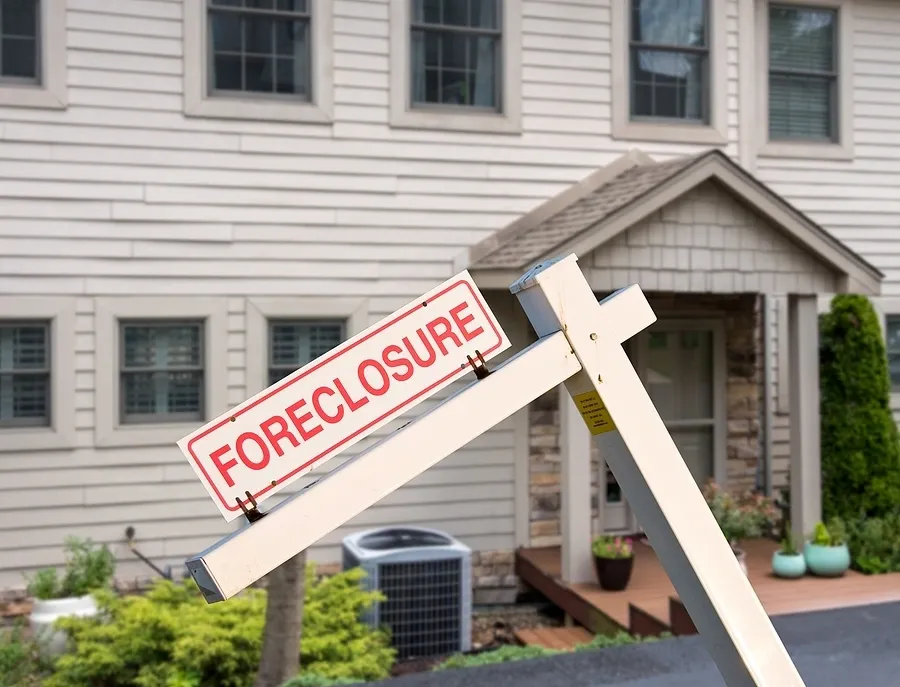The first case of COVID-19 hit the US in February of 2020, and since then, our lives have never been the same. The entire country seemed to grind to a halt as businesses closed, people were told to stay home, schools closed, masks were everywhere, and the pandemic news seemed to change daily.
As the pandemic continued, many Americans had to make hard economic choices like buying groceries or paying the mortgage. Millions of Americans could simply no longer afford to make mortgage payments and were in fear of losing their homes.
But some homeowners were given mortgage relief when the government passed the $2.2 trillion CARES Act (the Coronavirus Aid, Relief, and Economic Security Act) in March 2020. The bill included a mortgage forbearance program, and millions applied for the relief.
Covid is still here, but life is returning to more normal times. But what about the people who used the CARES Act to try and save their homes? And equally important, what if you have trouble making your mortgage payments today. What help is available to you now?
Who Qualified for the CARES Act Mortgage Relief
Starting in March 2020, the CARES Act gave millions of homeowners mortgage relief in the form of a mortgage forbearance.
There were only two essential qualifications. First, the program only covered federally backed mortgages. The loan had to be guaranteed, purchased, insured, securitized or originated directly by a federal entity like the FHA, VA, or USDA. And about 75% of all single-family mortgages in the US are federally backed.
The only other qualification was the homeowner calling the mortgage company or lender and explaining they wanted the forbearance program because of Covid’s negative impact on their ability to make payments. The request didn’t need to be in writing, and no documentation was required. And the lender could not refuse to enter the borrower into the forbearance program.
Millions of homeowners who were financially affected by the pandemic entered the program.
What is Mortgage Forbearance?
Forbearance is usually a short-term solution used when people cannot afford their mortgage payment and want to get back on track. Forbearance is a modification of your loan that suspends payments or sometimes reduces them for a period of time.
The Covid forbearance relief entitled you to an initial 180 days of forbearance, with an additional extension of another 180 days. Later, another extension until June 30, 2021, was issued. Your forbearance period ends 360 days from when you start it.
The Problem with Mortgage Forbearance
The CARES Act was supposed to help financially struggling homeowners and give them the opportunity to stabilize their financial situation.
The good part is the forbearance stopped collection activity and foreclosure proceedings during the forbearance period. Lenders were also prohibited from adding late fees or collection fees.
But the problem was that all those unpaid mortgage payments come due when the forbearance is over.
Forbearance is not a forgiveness of any of the debt. Nor is it a deferral that would put the missed payments on the back of the loan. Both forgiveness and deferral are vastly more helpful to struggling homeowners than forbearance.
There was no uniform forbearance agreement, with each lender creating their own forbearance terms. Some wanted a lump sum of all missed payments as soon as the forbearance period was up. Others wanted greatly increased monthly payments.
And if someone is having a difficult time making mortgage payments and affording household essentials, the odds are not good that they will be able to come up with a dozen mortgage payments in a lump sum.
If you have a tough time making a $3,000 a month mortgage payment, can you imagine in 12 months coming up with an additional $36,000?
What to Do with A Bad Forbearance Plan
The pressure and stress of a forbearance plan can be extreme. Every month you don’t make a mortgage payment, you know those payments are just adding up and it is all coming due soon, too soon.
While being able to survive without the monthly mortgage payment, it was a temporary though appreciated relief. However many individuals and families know there is no possibility you will be able to make the lump sum payment of accumulated missed payments or be able to pay increased payments when the period is over.
And this applies to all mortgage forbearance programs, not just those under the CARES Act.
Consider the Protections of a Chapter 13 Bankruptcy
Suppose that you gain your financial earning power again during forbearance and can now make the monthly payments. But you can not afford the lump sum payment coming due.
Or imagine you are on the road to financial recovery and can almost make the mortgage payment, but other bills and debts are making it complicated to pay them all.
And what should you do if you finished a forbearance plan and are now being foreclosed on because you cannot make the lump sum or increased payment in the agreement?
Your Next Best Steps
A Chapter 13 bankruptcy has federal bankruptcy laws designed to protect you and help you keep your assets.
And while everyone’s circumstances are unique, Chapter 13 might give you the protection you are looking for, as you and your bankruptcy lawyer design a plan to help you get on the solid financial ground finally.
The sooner you are under the protection of federal bankruptcy laws, the sooner your creditors and lender must stop collection practices and abide by those same laws.
Bankruptcy need not be stressful or embarrassing. Chapter 13 bankruptcy is a federally protected way to save your assets and create a workable plan to catch up and start over. And you should not be afraid to take advantage of this protection.
At Kain + Henehan, we approach the subject of bankruptcy with a compassionate guiding hand. We are qualified Minnesota bankruptcy attorneys. Helping people save their homes and other assets is something we do every day.
We know how difficult it can be to ask for help. If you are in a bad forbearance plan or worried about losing your house, let us help you with your next best steps.
We help families like yours get a fresh start in their new financial lives. Let us help you, too.
Call our office today at 612-438-8006 or go online to schedule a free consultation.







